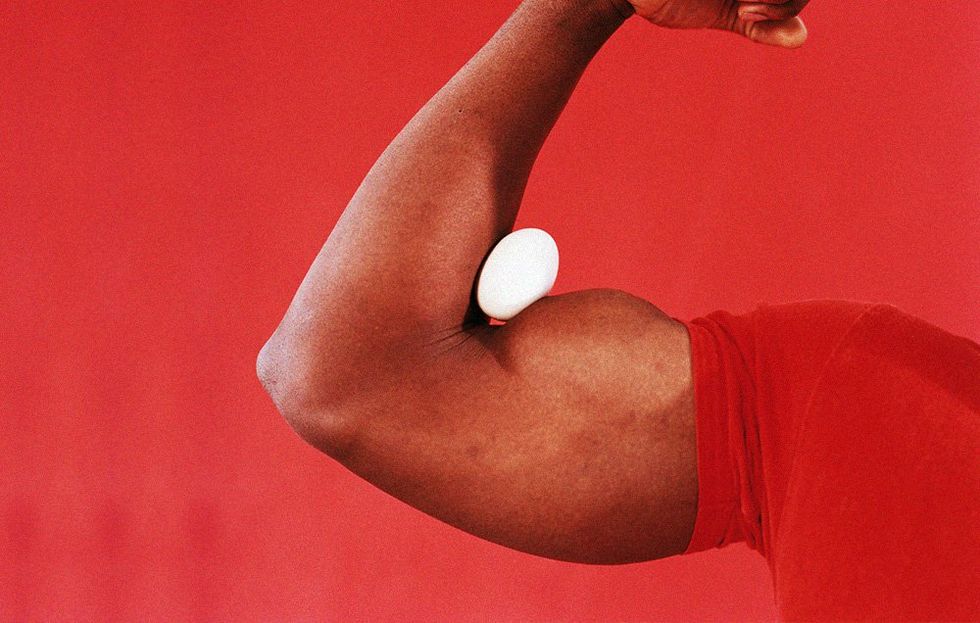This just might be the key to serious muscle growth.

What you eat after you lift can be just as important as the work you’re putting in at the gym. But your regular post-workout shake might not be doing your muscles any favors. Consuming protein along with other nutrients in whole food sources may be more effective at sparking muscle growth than just eating protein alone, new research published in the American Journal of Clinical Nutrition suggests.
In the study, researchers had 10 healthy, young men who regularly lift take part in two separate trials. In one, they ate three whole eggs, totaling 18 grams (g) protein and 17 g fat, within five minutes after a leg workout. In the other, they consumed the equivalent amount of protein from egg whites, which gave them 0 g fat.
Then, the researchers took biopsies of the men’s muscles two and five hours later to measure something called their myofibrillar protein synthetic response, or the rate at which their protein fibers repaired themselves following the small tears caused by their workout.
They discovered that the whole egg consumption sparked significantly greater protein fiber repair and recovery than eating the egg whites did. And that’s important, since that process is key to building bigger and stronger muscles, explains study author Nicholas A. Burd, Ph.D., an exercise physiologist at the University of Illinois at Urbana-Champaign.
The researchers haven’t been able to pinpoint exactly what it was about the whole egg that triggered a greater muscle-building response, Burd says. But it may have to do with “food synergy,” or the theory that food components work together to elicit a greater protein synthesis response than simply eating protein alone.

Some possibilities in the whole egg? The yolk contains fats, including the omega-3 fatty acid DHA, vitamins, like vitamins A, D, E, and K, and minerals, like phosphorus and iron. (The egg whites, while matched in protein, lacked the nutrients of the whole egg).
“All of these non-protein food components may be helping dietary amino acids to support the post-workout muscle building response,” says Burd.
So what does this mean for you? Well, you already know that you should eat protein after your workout. But these findings suggest you might be better off eating real food than simply chugging a protein shake afterwards, since they tend to lack the other nutrients that can make up a whole-foods source of protein.
“The major point here is that these data give an indication that it may be possible to improve the use of protein in the diet by consuming protein within its natural, whole food matrix as opposed to consuming isolated protein sources,” Burd says.


